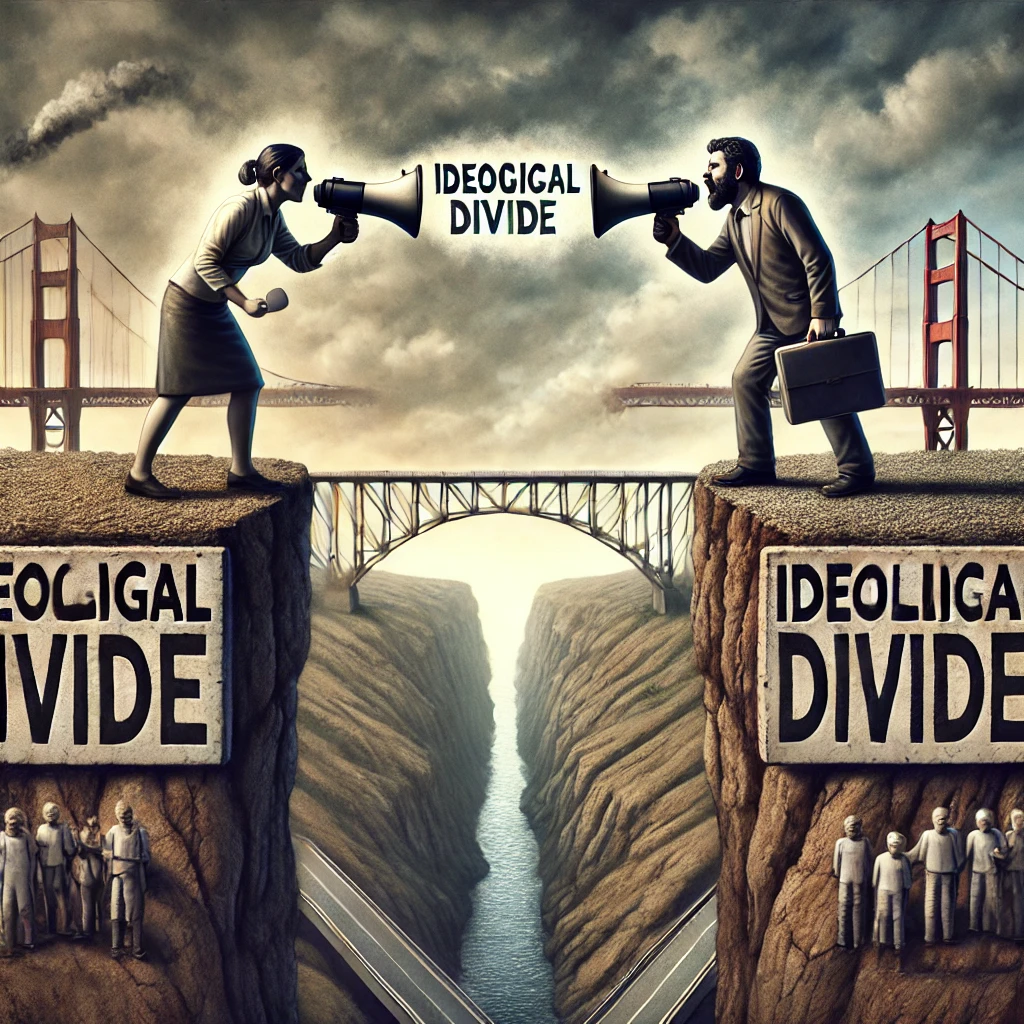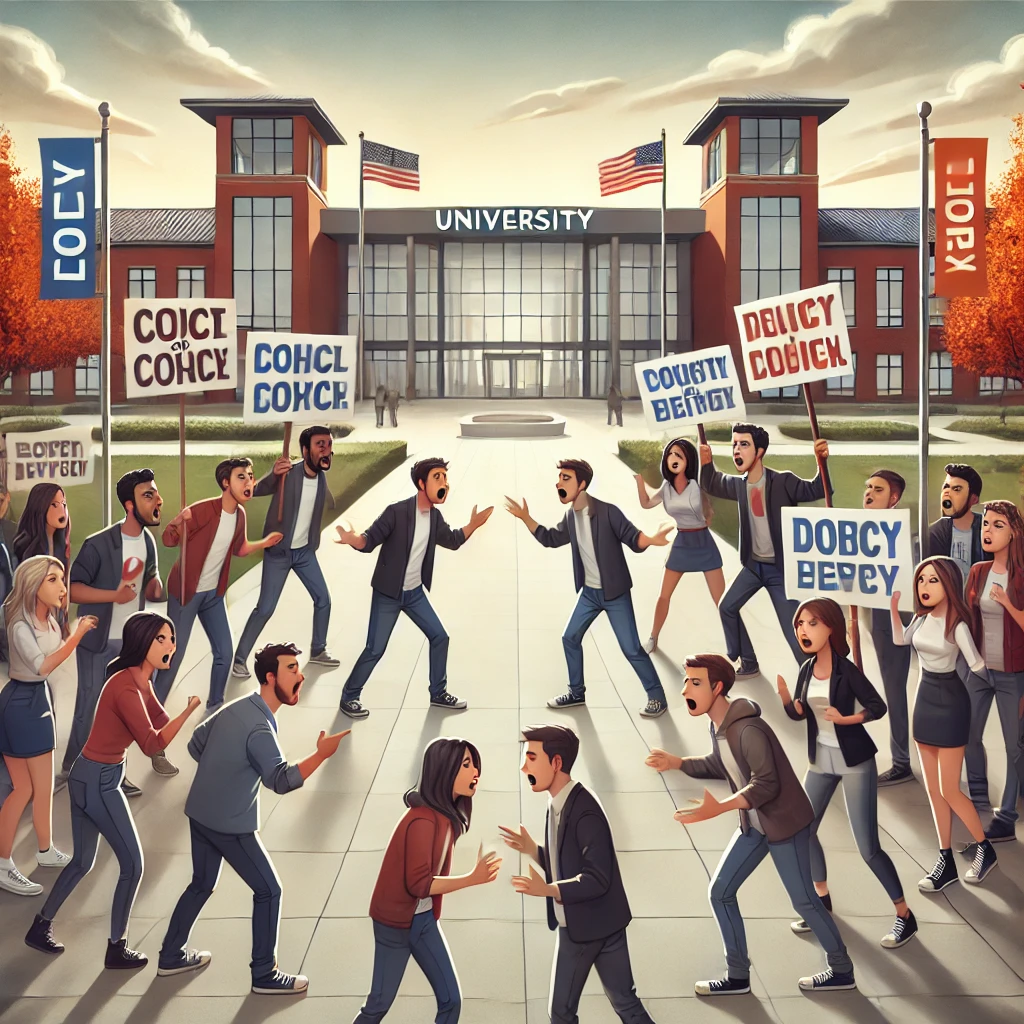
It was supposed to be a simple classroom debate on climate change, but within minutes, the discussion turned into a heated argument. Two groups formed—one accusing the other of being anti-science, the other calling their opponents radical alarmists. Instead of engaging in a thoughtful exchange of ideas, the students began shouting, unwilling to listen to any perspective that didn’t align with their own. This moment, reflective of a growing societal trend, highlights the dangers of the “us vs. them” mentality.
As Greg Lukianoff and Jonathan Haidt discuss in The Coddling of the American Mind, the world has become increasingly divided, with people sorting themselves into ideological tribes. This polarization discourages open-minded discussion, fosters hostility, and makes it difficult for society to solve its most pressing challenges. Understanding the roots of this mentality and finding ways to overcome it is essential to restoring meaningful dialogue and cooperation.

The Roots of the “Us vs. Them” Mentality
Humans have long been wired for tribalism, an instinct that once helped small groups survive. However, in today’s interconnected world, this instinct manifests in unproductive ways, particularly in political, social, and cultural debates. Some of the key contributors to modern polarization include:
- Social Media and Algorithm-Driven Content – Platforms like Twitter and Facebook amplify extreme viewpoints, creating echo chambers where people are rarely exposed to opposing perspectives.
- 24/7 News Cycles and Sensationalism – News outlets prioritize controversy and conflict, often presenting issues in black-and-white terms rather than encouraging nuanced understanding.
- Political and Cultural Identity Wars – Many people now see their political or cultural beliefs as core to their identity, making any challenge to their views feel like a personal attack.
- Fear and Misinformation – The spread of exaggerated or false information fuels distrust and reinforces stereotypes about opposing groups.
The Consequences of Polarization
The more people view those with different perspectives as “the enemy,” the harder it becomes to engage in meaningful discourse. Some of the harmful effects of extreme polarization include:

- Erosion of Civil Discourse – Rational debate is replaced by name-calling, hostility, and the refusal to listen to opposing viewpoints.
- Breakdown of Friendships and Families – Many people find themselves unable to discuss important issues with friends or relatives due to extreme ideological divides.
- Political Gridlock – Governments struggle to enact effective policies when lawmakers prioritize attacking the opposition rather than working toward compromise.
- Increased Stress and Anxiety – Constant exposure to conflict, whether online or in real life, takes a toll on mental health.
How to Combat the “Us vs. Them” Mentality
Overcoming polarization requires conscious effort from individuals, institutions, and society as a whole. Here are some practical steps to reduce division and promote more constructive engagement:
- Seek Out Diverse Perspectives – Read, watch, and listen to a variety of sources, including those that challenge your beliefs.
- Engage in Thoughtful Conversations – Approach discussions with curiosity rather than a desire to “win” an argument.
- Recognize Common Ground – Instead of focusing solely on differences, find shared values that can serve as a foundation for dialogue.
- Avoid Demonizing Opponents – Understand that people with differing opinions are not necessarily bad or malicious; they may simply have different experiences and viewpoints.
- Encourage Critical Thinking and Fact-Checking – Verify information before sharing it, and be willing to change your mind when presented with strong evidence.
Conclusion
Polarization is one of the greatest challenges facing modern society, but it is not insurmountable. By rejecting the “us vs. them” mindset and prioritizing open-minded discussion, individuals can help rebuild a culture of civil discourse and collaboration. If society is to move forward, people must learn to engage with—and learn from—those who see the world differently.
This article is part of our series on The Coddling of the American Mind. Stay tuned for our next installment: The Decline of Free Speech in Educational Institutions.
Brent is the Managing Partner of CatchMark Technologies and a seasoned technologist with over 25 years of experience in IT leadership, cybersecurity, and technical operations. He began his career serving in the U.S. Army, where he worked extensively with electronics—laying the foundation for his lifelong passion for technology and problem-solving. Brent holds a Certified Information Systems Security Professional (CISSP) certification and currently leads CatchMark’s Cybersecurity and Tech Support teams. Known for his strategic thinking and hands-on expertise, he excels in guiding secure, scalable solutions and driving innovation across complex technical environments.
Must See
-


History
/ 16 hours agoWhite Lake History – Activities of the Chamber of Commerce
Article from the Past This week’s history feature is plain and simple—a direct article...
By Owen Raeth -


Community
/ 1 day agoCity of Whitehall Council Meeting Recap — May 27, 2025
The Whitehall City Council met on May 27, 2025, for a full agenda that...
By Amy Yonkman -


Community
/ 2 days agoRotary Seeks Competitors for Bacon, Bloodys & Brews
Get ready, White Lake! The Montague-Whitehall Rotary Club is launching its 1st Annual Bacon,...
By Amy Yonkman












